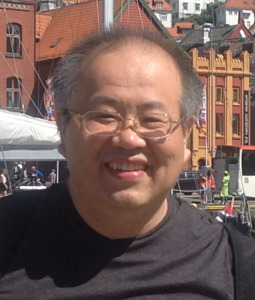Prof Hong Wang - Variable-order time-fractional partial differential equations: modeling and analysis

Webinar: Thursday1st April 10:00 PM Brisbane.
Variable-order time-fractional partial differential equations: modeling and analysis
Fractional partial differential equations (FPDEs) provide more accurate descriptions of anomalously diffusive transport of solute in heterogeneous porous media than integer-order PDEs do, because they generate solutions with power law (instead of exponentially) decaying tails that were observed in field tests.
However, solutions to time-fractional PDEs (tFPDEs) have nonphysical singularity at the initial time t=0, which does not seem physically relevant to anomalously diffusive transport they model and makes many error estimates to their numerical approximations in the literature that were proved under the full regularity assumption of the true solutions in appropriate. The reason lies in the incompatibility between the nonlocality of the power law decaying tail of the solutions and the locality of the initial condition. But there is no consensus on how to correct the nonphysical behavior of tFPDEs.
We argue that the order of a physically correct tFPDE model should vary smoothly near the initial time to account for the impact of the locality of the initial condition. Moreover, variable-order tFPDEs themselves also occur in a variety of applications. However, rigorous analysis on variable-order tFPDEs is meager.
We outline the proof of the wellposedness and smoothing properties of tFPDEs. More precisely, we prove that their solutions have the similar regularities to their integer-order analogues if the order has an integer limit at the initial time or have the same singularity near the initial time as their constant-order analogues otherwise.
